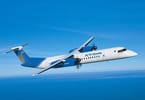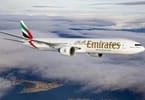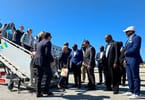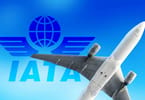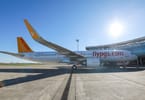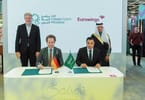Global aviation regulators face a hectic schedule to translate into reality the expectations created by Japan Airlines Corp.’s decision to retain American Airlines as its partner.
A series of key decisions are being jammed into the next nine months that will determine the future shape of the airline industry, a timetable that some observers view as unrealistic.
The process is also expected to re-ignite fierce industry rivalries after a period of detente created by intensifying scrutiny by competition authorities of the three global alliances–SkyTeam, Star and oneworld–that dominate the global airline business.
The scrap for JAL between American, a unit of AMR Corp., and Delta Air Lines Inc. saw some of the most colorful exchanges between executives seen for some years.
The gloves will come off again Wednesday, when at least four U.S. airlines compete for limited new access to Tokyo’s Haneda airport in one of the most hotly contested route awards seen in recent years.
The tussle for access to Haneda is expected to set the tone for industry rivalry. U.S. carriers won the right to start just four daily services to Haneda, compared with 20 for Japanese airlines.
The airport is highly prized because of its proximity to Tokyo’s business district. At 30 minutes, the journey is a third of the time taken to reach Tokyo’s main gateway at Narita airport.
Delta still has the largest transpacific network despite lacking a Japanese partner. But its focus at Narita means it has the most to lose if premium travelers divert to Haneda. “Delta is interested in service at Haneda Airport, and we are currently considering our options,” said a spokesman.
American, United and Continental Airlines Inc., which have Japanese partners, said they are “evaluating options,” but are also expected to seek Haneda access.
U.S. Transportation Department Nears Oneworld Ruling
The U.S. Department of Transportation is also expected to reveal its decision this week on the application for anti-trust immunity lodged by American, British Airways PLC and their oneworld partners.
People familiar with the situation expect the Transportation Department, after an exhaustive 18-month review, to approve a pact that brings oneworld into line with immunity already granted to members of Star and Delta’s SkyTeam, albeit with some conditions.
The DOT routinely doesn’t comment on pending cases. BA and American have said they are confident of securing approval, despite opposition led by Virgin Atlantic Airways.
While European regulators continue to examine transatlantic pacts, the attention in the U.S. and Japan will shift to reviewing two applications to immunize airline deals between the two countries.
JAL and American plan to lodge their application in the coming days. Three Star members–United Airlines, a unit of UAL Corp., Continental Airlines and All Nippon Airways Inc. made their own application in late December.
Japanese regulators have pledged to review the proposals in just four months, even though they have no track record in such cases. That would allow the alliances to take advantage of the opening of Haneda to international flights from October, and cement the proposed open-skies pact with the U.S. outlined last December.
Japan has asked the U.S. to expedite its own scrutiny to keep the open-skies deal on track, though the DOT typically takes far longer and recently rapped its counterpart for assuming any deals would be cleared.
The battle for JAL has already delayed a DOT decision on a request for immunity made by Delta and Australia’s Virgin Blue Holdings Ltd. last July.
While the Australian authorities approved the deal–which is viewed as far less controversial than one involving the larger Japanese market–the partners will have to wait until at least August to implement a deal, based on established DOT procedure.
WHAT TO TAKE AWAY FROM THIS ARTICLE:
- While the Australian authorities approved the deal–which is viewed as far less controversial than one involving the larger Japanese market–the partners will have to wait until at least August to implement a deal, based on established DOT procedure.
- That would allow the alliances to take advantage of the opening of Haneda to international flights from October, and cement the proposed open-skies pact with the U.
- People familiar with the situation expect the Transportation Department, after an exhaustive 18-month review, to approve a pact that brings oneworld into line with immunity already granted to members of Star and Delta’s SkyTeam, albeit with some conditions.





